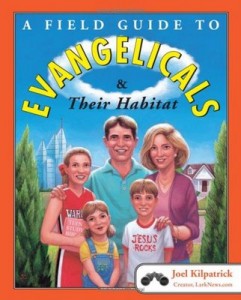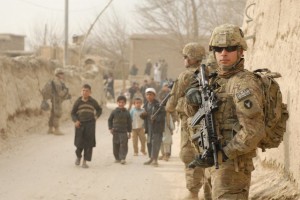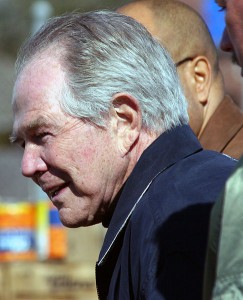Elections
RACE WAS THE issue that changed the direction of my life. Growing up in Detroit in the early 1960s, the realities of white racism upended the world and church that I lived in.
What I saw and heard as a teenager painfully showed me that something was terribly wrong with my country and my religion. Trying to confront it got me virtually kicked out of my childhood church, led me into the civil rights and student movements, introduced me to the black churches, and set me on a path that would eventually bring me back to the good news of the gospel of Jesus Christ—which calls for social, racial, and economic justice. The historical tragedy, the “original sin,” of white racism in the United States is still a fundamental starting point to how I see the world.
So when I look at this election involving the first African-American president in U.S. history, I can’t help but go back to the critical questions of race. Let me be clear: To disagree with policies of President Obama and his administration is not racist. Agreements and disagreements are just that, and should not be correlated to race. And regardless of how we vote, we should all appreciate the fact that the role model of the Obama family living in the White House has convinced millions of young black men and women, and youth of all races—many for the first time—that they are really a part of this country and that they too could someday be president of the United States.
But I am concerned about how race has again distorted our politics. I want to speak directly to what those racial politics are and how people of faith should call them out and oppose them, no matter how we vote or what we think of the policies of the president.

Joseph Sohm / Shutterstock.com
[editor's note: This article was originally published in 2012. References to elections or politicians without specific dates attached are in the context of the 2012 election cycle.]
AS I CAREFULLY watched both the Democratic and the Republican conventions this summer, I realized, once again, how challenging and complicated it is to bring faith to politics.
For example, the phrase “middle class” was likely the most repeated phrase at the conventions. And even though both parties are utterly dependent on their wealthy donors (a fact they don’t like to talk about), they know that middle-class voters will determine the outcome of the election. Now, I believe a strong middle class is good for the country, but Jesus didn’t say, “What you have done for the middle class, you have done for me.” Rather, Matthew 25 says, “What you have done to the least of these, you have done to me.”
When your first principle for politics is what happens to the poor and vulnerable—and I believe that is the first principle for Christians—you keep waiting at conventions for those words and commitments. There were a few moments when the poor were briefly mentioned, but it certainly wasn’t a strong theme in Tampa or Charlotte. “Opportunity” for the middle class was an important word in both conventions this year, but Christians must be clear that creating new opportunities for poor children and low-income families is critical to us.
The conventions also talked a great deal about “success,” but how we define that is very important. Is success mostly about how much money we make, defining the “American Dream” as being able to pass on more riches to our children than what our parents passed on to us? Or is success measured by how we as a nation prioritize, in our spending and political choices, the sick, the vulnerable, the weak, and the elderly? Is it determined more by the values we pass on to our children—evaluating our lives, and theirs, by how much we are able to help others?
America is a nation of immigrants, and how we welcome “the stranger” in our midst is another Christian principle for politics. So is our racial diversity as a nation, where all our citizens must be treated as having equal value. The most inspiring stories at the conventions for me came when that diversity was evidenced on the stage—from a young undocumented “dreamer” and a black first lady on the platform at the Democratic convention to Condoleezza Rice telling her fellow Republicans how a little girl from a segregated Southern city became secretary of state. But little mention was made at either convention of the racial disparities in America’s burgeoning prison industry or voting suppression efforts that most affect minorities and people who are poor.
Souad Mekhennet writes for The New York Times on the growing hostility toward religious minorities as election season approaches in the United States:
Muslims in Western countries say they have gotten used to the fact that as elections get closer, politicians pump up the volume of accusations against them, whether they are Sunni, Shiite or of another sect. In some European nations, it was the debate over women wearing the veil that set off the attacks. Now in the United States, where pivotal elections are looming, accusations against Muslims have reached a new level. It seems to some that the days of McCarthyism are back.
Read more here
The Christian Post reports:
"A new ABC/Washington Post poll released Monday highlights the differences between Americans who believe racial and religious discriminations are non-issues today versus those who feel racism is a factor in selecting our elected leaders. The poll is timely given that its findings apply to both presidential candidates: incumbent Barack Obama, the first African-American U.S. president, and former Massachusetts Gov. Mitt Romney, who if elected would be the first Mormon U.S. president.
According to the poll, 62 percent of non-blacks do not see racial discrimination as a predominant issue in their communities. Among this group, 59 percent favor Romney while 34 percent back Obama.
CNN reports on worrying developments in Egypt:
"Egypt's highest court on Thursday declared the country's parliament invalid and cleared the way for a member of former President Hosni Mubarak's regime to run in a presidential election runoff this weekend.
The Supreme Constitutional Court ruled that parliament must be dissolved, state TV reported. An Egyptian constitutional law expert told CNN that following the court's decision, a political decision would be made about whether to dissolve parliament.
Following the ruling, Egypt's interim military rulers claimed to have full legislative control of government. Parliament had been in session for just over four months."
IF THE FIRST decade of the 21st century began with the Supreme Court’s Bush vs. Gore ruling that selected a U.S. president, it ended with another decision that was also conspicuous as a departure from long democratic precedent. And like Bush vs. Gore, it was a case of judicial activism tilting the electoral system toward conservative interests and outcomes.
The Court’s 5 to 4 decision in Citizens United vs. Federal Election Commission on Jan. 21, 2010, allowed the use of corporate and union money in unlimited sums to influence election campaigns. Citizens United was, all at once, a truly remarkable piece of judicial activism, a precedent-shattering evisceration of a century-long tradition of limiting corporate power in American politics, a break with the republican tradition’s well-founded fear of political corruption, and a direct interference with the electoral rules in a way that favored those who had put the conservative justices in a position to make the ruling in the first place.
The case arose when Citizens United, a conservative group, brought suit arguing that it should be exempt from the restrictions of the 2002 McCain-Feingold campaign finance law for a movie it made that was sharply critical of Hillary Clinton, at the time a presidential candidate. The organization argued that, as a First Amendment matter, it should not be required by law to disclose who financed the film.
The conservative majority’s determination to go far beyond the specifics of the case it was considering became clear in June 2009 when the Court, in a remarkable act of overreach, postponed a decision and called for new briefs and a highly unusual new hearing. It chose to consider an issue only tangentially raised in the original case by calling into question a 1990 decision that upheld the long-standing ban on the use of corporate money in campaigns. As Justice John Paul Stevens noted later in his scalding dissent, “Essentially, five justices were unhappy with the limited nature of the case before us, so they changed the case to give themselves an opportunity to change the law.”
For Christianity Today, Jayson Casper writes:
Initial results from Egypt’s first round of elections produced an unexpectedly large showing for Islamists. The Freedom and Justice Party of the Muslim Brotherhood gained approximately 37 percent of the seats selected from political party lists, in line with predictions. The real shocker was the 24 percent vote obtained by the al-Nur party of the Salafi movement. The Salafis are extreme conservatives who favor restrictions on the role of women and Saudi-style controls on public morality. Liberal-left parties in the various party blocs gained about 37 percent. The results are very preliminary, with two more rounds of voting still ahead.
If we look at what is happening this week – elections in Egypt and the Democratic Republic of Congo, an aid effectiveness conference in South Korea, the continuing Arab Spring in Syria and beyond, World Aids Day Thursday – and in the coming weeks -- the U.N. climate change conference, COP17 -- we cannot pretend that these events have no impact on our lives here and now.
Every one of these events is a matter of justice. The citizens of Egypt and the Democratic Republic of Congo deserve the opportunity to express freely, without fear of intimidation or violence, how they believe their country should be governed. Having spent some time in the region, I believe that the people of the DRC deserve more than any other to live in a country where they are safe and secure.
How we assist other countries in their development is an issue of justice.
Occupy America: A new great awakening. Election-year goals of Christian group questioned. Would you pledge $20.14 to end the war in Afghanistan? Religion And Immigration: We Have Not Yet Begun To Love.
Let’s face it — while lawmakers are picking their own battles in Washington, they aren’t fighting on the ground in Afghanistan. Winning elections has become more important than implementing winning foreign policy strategies that would end the war and bring our service men and women safely home.
And it’s my generation that’s being sacrificed.
In his column last week, Sojourners chief Jim Wallis talked about his frustration with the perennial misuse of the word "evangelical" by various media to describe folks and ideas that, in his view, and that of many of us who self-describe as evangelicals, don't bear any resemblance to what we understand that term to actually mean.
Below is a compilation of recent media reports where the word "evangelical" is invoked. When you read these, evangelical brothers and sisters, do you recognize yourself in how the word is used and defined? Or does it ring false to you and your understanding of what "evangelical" really and truly means?
When President Barack Obama laid out his deficit plan Monday, he wasn't just trying to sell a policy. When he pressed for tax hikes on the rich and announced, "This is not class warfare," he was trying to exorcise a demon that has bedeviled the Democratic Party for decades and in the process deprive the Republicans of one of their trustiest weapons. The reaction from the right was swift and sure: "Class warfare!"
 Most of my friends knew evangelicalism only through the big, bellicose voices of TV preachers and religio-political activists such as Pat Robertson, the late Jerry Falwell and James Dobson. Not surprisingly, my friends hadn't experienced an evangelicalism that sounded particularly loving, accepting or open-minded.
Most of my friends knew evangelicalism only through the big, bellicose voices of TV preachers and religio-political activists such as Pat Robertson, the late Jerry Falwell and James Dobson. Not surprisingly, my friends hadn't experienced an evangelicalism that sounded particularly loving, accepting or open-minded.
After eschewing the descriptor because I hadn't wanted to be associated with a faith tradition known more for harsh judgmentalism and fearmongering than the revolutionary love and freedom that Jesus taught, I began publicly referring to myself again as an evangelical. By speaking up, I hoped I might help reclaim "evangelical" for what it is supposed to mean.
Sojourners has always tried to understand and advocate for "biblical politics." But what does that mean now, especially as we approach another major election?
I was talking the other day to a Christian leader who has given his life to working with the poor. His approach is very grassroots -- he lives in a poor, virtually all-minority community and provides basic services for low-income people. He said, "If you work with and for the poor, you inevitably run into injustice." In other words, poverty isn't caused by accident. There are unjust systems and structures that create and perpetuate poverty and human suffering. And service alone is never enough; working to change both the attitudes and institutional arrangements that cause poverty is required.
Ten years on, I'm remembering the literature I read and the music that kept me going in the days and months after 9/11. I had Rumi and Whitman on my bedside table, reading them back to back, alternating between selections of the Mathnawi and poems from Leaves of Grass, sometimes feeling like the two were one, the soul of America, and that the soul of Islam were intersecting at some point beyond where the eye could see:
Whoever you are!, motion and reflection are especially for you, The divine ship sails the divine sea for you. -- Walt Whitman
Come, come, whoever you are, Wanderer, worshipper, lover of leaving, Ours is not a caravan of despair. Even if you have broken your vows a thousand times It doesn't matter Come, come yet again, come. -- Rumi
Until then, the Quran for me was a book of personal spiritual guidance, a convening symbol for my religious community. But after 9/11, I viewed it as a balm for my country's pain, especially lines from Ayat al-Kursi: "His throne extends over the heavens and the earth, and He feels no fatigue in guarding and preserving them."
!['Civil Rights March on Washington, D.C. [Dr. Martin Luther King, Jr., President of the Southern Christian Leadership Conference, and Mathew Ahmann, Executive Director of the National Catholic Conference for Interrracial Justice, in a crowd.], 08/28/1963' photo (c) 1963, The U.S. National Archives - license: http://www.flickr.com/commons/usage/](http://lh3.ggpht.com/-XUAmAA_vWKI/Ti7l4ZavSOI/AAAAAAAACS8/0Y0EfQ03QzA/Flickr-4101511358.jpg) How should music rank among the ever-growing list of time-tested nonviolent methods such as boycotts, marches, strikes, sit-ins, and vigils?
How should music rank among the ever-growing list of time-tested nonviolent methods such as boycotts, marches, strikes, sit-ins, and vigils?
Anthony Shadid of the New York Times reports that a song, "Come on Bashar, Leave," is spreading across Syria, boldly calling on President Bashar al-Assad to step down. (Bryan Farrell also wrote about it at the Waging Nonviolence blog.) The article suggests that a young cement layer who chanted it in demonstrations was pulled from the Orontes River this month, his throat having been cut, and, according to residents of the city of Hama, his vocal chords torn out. Hama is where, in 1982, then-president Hafez al-Assad, father of the current president named in the song, gave orders to the army to massacre more than 10,000 in putting down an Islamist upheaval. Today, boys 6-years-old and older vocalize their own rendition of the original warbler's song instead. As the song has sped across Syria, demonstrators have adopted it for themselves.
As the time shortens for Congress and President Obama to agree to the contours of legislation to raise the nation's debt ceiling, I am reminded of the story of King Solomon and his judgment regarding two women who both claimed to be the mother of a child (I Kings 3: 16-28). Solomon ordered that the living child be cut in two and half a dead child be given to both women. The woman who was the true mother insisted that the living child be given to the false mother. She was willing to give up her righteous claim to save the child's life.



